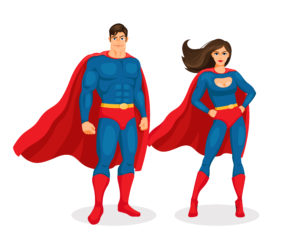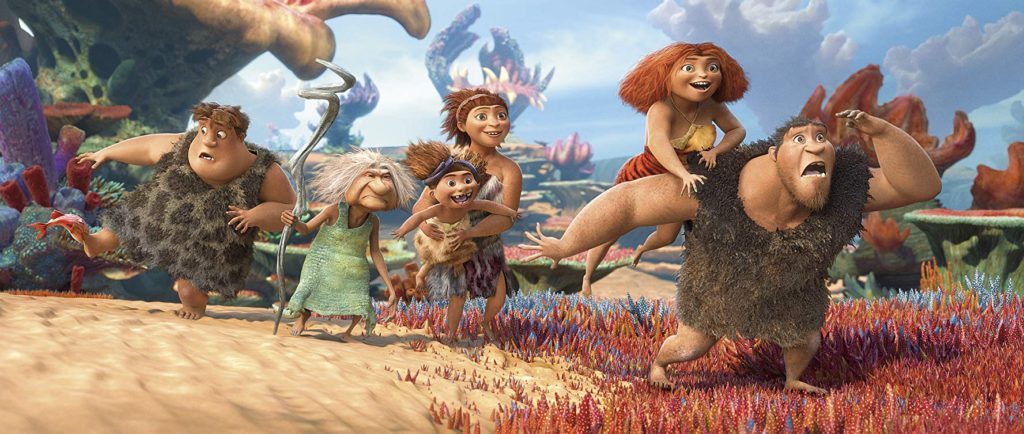 We all know about asset protection. Protect against risk, protect against the downside, protect against the unknown. But are you really protecting your most valuable asset?
We all know about asset protection. Protect against risk, protect against the downside, protect against the unknown. But are you really protecting your most valuable asset?
Here’s a more basic question: what is your most valuable asset, from the perspective of raising happy, healthy children? If you’re a parent, you have at least one other person depending on you financially, possibly more — a wife and four kids in my case.
Is it your stock portfolio? What happens if your stocks go down by 30%? Or more? Will it affect whether or not your kids eat, or can afford new school supplies? Probably not.
Is it your primary residence? What happens if your house value declines by 20%? Does it really affect your family’s well-being or day-to-day operation in any way? No, not really.
As a career-oriented parent, what matters most is protecting your own health and well-being. By far, the number one risk to your children’s thriving and life opportunity is whether you and your spouse stay happy, healthy, and productive. Worst case scenarios probably have very little to do with your investment assets. Instead, they depend more on whether you can be Superman and Superwoman even with all of the stresses and pressures of career and parenthood.
 Your Most Valuable Asset – YOU!
Your Most Valuable Asset – YOU!
Here are some real worst-case scenarios: (1) you or your spouse get sick or depressed, (2) you start drinking too much or doing drugs, or (3) you get burned out or lose interest in your work. Those are true disaster scenarios for your family, because they affect your ability to provide basic safety, security, and opportunity for your kids.
Think bigger picture about the total amount of financial resources you and your family will have over your lifetime. Does it depend more on the rate of return of your financial assets, or on how long and how much you will earn? One-year or even several-year financial returns pale in comparison to what you’ll earn over the next 20-30 years, assuming you stay happy, healthy, and productively working.
It’s only when your assets are maybe 5 to 10 times your income (or more) that the balance starts to shift. Even then, it’s debatable: what’s more important to Jeff Bezos’s family? Having a happy, healthy, productive father or all of the net worth he’s amassed? (Although, $100 billion is a lot of money…)
For example, what would happen to The Croods if Grug and Ugga got sick or depressed? Could the rest of them make it without Mom and Pop?
 Protecting Your Most Valuable Asset in the Stone Age
Protecting Your Most Valuable Asset in the Stone Age
Source: The Croods (2013), IMDb
Here are some ideas for protecting your most valuable asset, your own interest and ability to earn income for the family:
1. Prioritize your health. Exercise multiple times per week, at least walking regularly. Spend a little extra to eat healthier. Make time to go to the doctor, the dentist, including regular check-ups (yes, I’m talking to you who haven’t gone to the doctor in years!). Maintain your health as a top priority in every decade of your life.
A recent People Magazine article reported on Justin Timberlake and Jessica Biel protecting their health as a fundamental strategy for success, because they realize how important it is for their family well-being:
And because Timberlake “is working so hard” to deliver the best performances possible to his colossal fanbase, Biel said the best place to take date night is back to the room so the “Say Something” singer stays “healthy.”
“What he has to do and the energy output … honestly, keeping him healthy is so important. It’s not just this wild party that everybody thinks,” she continued.
Biel added, “Yes, we’re in these amazing places, but a lot of times we’re trying to protect his immunity and protect his body from breaking down. A date night for us would be just sitting in the hotel and having room service and watching a movie — just like everybody else.” (emphasis added)
2. Spend a bit more to be a lot safer. The biggest cause of death by decade of your life is accidents in your 20s and 30s, followed by cancer in your 40s, 50s, and 60s, followed by heart disease in your 70s and beyond (Source: Daily Mail). Instead of staying in the cheap hotel in a sketchy part of town, spend a bit more for a hotel in a safe neighborhood. Instead of walking home late at night, call a taxi or Uber. Spend up front to be safer from danger.
3. Conserve that last 10% of effort at work. Don’t always be trying to squeeze out that last 10% of your day at work. The last 10% can often be 50% of the stress, especially if it happens after your kids go to bed. It’s not worth it. Instead, get to sleep early and hit the ground running the next day. Which brings me to…
4. Sleep. Getting more sleep is one of the single best things you can do for your health. I used to think that Sleep Was For The Weak, but I was wrong. Go to bed when your kids go to bed. Adding an extra 1-2 hours of sleep each night will add to your productivity during the day. Stay up late every once in a while, if you must (like Elon Musk), but not all the time.
5. Get babysitters. It can feel costly to drop $100 on a babysitter, on top of the money you’re already spending to go out on the town. But, you’ll be more connected with your partner, you’ll feel better about yourself, and be less likely to divorce (another huge financial risk and cost). Instead of going out late at night, Embrace The Morning Date, which saves money and improves health at the same time.
Dates represent money well spent. Let’s say you pay $50 for one morning or evening of babysitting per week — that’s $2,500 per year. Isn’t it worth $2,500 per year to go on regular dates with your wife? Even at $5,000 per year ($100 a week) or more, it’s still probably money well spent (budget permitting), and actually a good long-term risk reduction strategy for your financial well-being.
Why would you ever want a break from this?
6. Don’t worry so much. Don’t worry so much about being the best at anything. In order to be the best, you need to make too many sacrifices in other areas of your life. For many of us, it’s just not worth it. You definitely don’t want to risk Breaking the Unbreakable. Instead, Strive For Good Enough.
Many of us have life insurance to protect against death, and maybe long-term disability insurance to protect against getting injured. Both of these are real risks that we insure against to protect the family. But what is your insurance policy against getting bored, or getting depressed, or just burning out?
When you put your own health into perspective, it makes perfect sense to spend 5-10% of your income on things that help you thrive and stay productive. It’s your insurance policy, your asset protection, your ability to be the warrior and Hunt the Elk for your family.
You are the most valuable asset your family has — not to mention that you personally want to live a long and thriving life. Protect away!
Readers: Do you agree that your family’s most important asset is YOU? Why / why not? What other strategies do you use to protect your most valuable asset?

